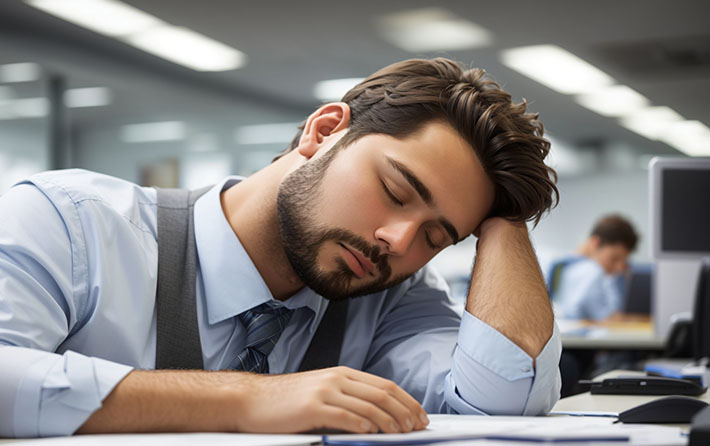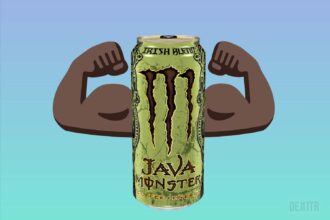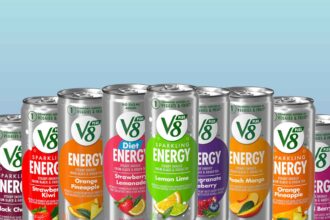Energy drinks are popular beverages that claim to boost your energy, alertness, and performance. But what if they don’t work for you? What if you feel no difference after drinking them, or worse, experience negative effects?
If energy drinks aren’t boosting your energy, potential causes include caffeine tolerance, dehydration, lifestyle habits, consumption timing, or underlying medical conditions like ADHD. Adjusting intake, staying hydrated, maintaining a healthy lifestyle, and consulting a healthcare professional can help optimize their effects.
In this article, we will explore the possible reasons why energy drinks are not working for you, and what you can do to make them work again. Ready? Let’s dive in!
By the way, if you’re new to the world of energy drinks, be sure to check out our guide for first-time energy drink consumers after reading this article.
Why Aren’t Energy Drinks Working For Me?
#1. Caffeine Intolerance
REASON:
Caffeine is a central nervous system stimulant found in many energy drinks. It’s the magic ingredient that supposedly “wakes you up.”
But here’s the twist: the more frequently you consume caffeine, the less effective it becomes.
Just like with any other substance, consistent and excessive intake can lead to the body developing a caffeine tolerance. When this happens, the brain’s receptors become less responsive, demanding more caffeine to achieve the same energizing effects.
To learn more, check out this guide on why caffeine makes you feel normal.
SOLUTION:
Firstly, recognize if you’re over-consuming caffeine. This isn’t just about energy drinks; it also includes coffee, tea, certain medications, and even some foods.
If you’re sipping on multiple caffeinated beverages throughout the day, you’re likely overdoing it.
Take a caffeine detox. This means cutting down or eliminating caffeine from your diet for a set period, typically a few weeks.
Don’t quit it suddenly, or you might experience withdrawal symptoms like headaches or irritability. Gradually decrease your intake each day.
Once your tolerance has reset, be mindful of your caffeine consumption. Moderation is key. Stick to the recommended daily limit; don’t go over 400 milligrams of caffeine per day (for most adults).
This way, when you do reach for that energy drink or cup of coffee, you’ll genuinely feel its effects. And remember, everyone’s caffeine sensitivity is different, so listen to your body and adjust accordingly.
#2. Dehydration
REASON:
Believe it or not, the very drink that promises to perk you up could be the one dragging you down. Many energy drinks contain high levels of caffeine and sugar, both of which can be dehydrating agents.
Dehydration can diminish the body’s ability to function optimally, leading to fatigue, dizziness, and even confusion.
So, while you might be sipping on that energy drink expecting a boost, you might unintentionally be dehydrating yourself, negating the desired effect or even making yourself feel worse.
SOLUTION:
The solution here is twofold.
Firstly, be aware of your intake. It’s essential to know how much caffeine and sugar you’re consuming, not just from energy drinks but from all sources throughout the day. The more you know, the better you can balance it.
Next, prioritize hydration. For every energy drink you consume, make sure to drink an adequate amount of water to compensate for the dehydrating effects. Investing in a refillable water bottle and carrying it around can serve as a constant reminder to hydrate.
Stay hydrated, and you might find that your energy levels naturally soar without the need for any added boosters.
In fact, we’ve put together a comprehensive guide comparing energy drinks and water. Check it out to see how they stack up against each other!
#3. Not Following A Healthy Lifestyle
REASON:
There’s a lot more to energy than just gulping down a canned drink. Our daily habits, ranging from sleep patterns to dietary choices, play a crucial role in how awake and alert we feel.
Firstly, sleep is the bedrock of our body’s energy balance. No matter how much caffeine you take, if you’re running on just a few hours of sleep, it’s like trying to fill a leaky bucket. A consistent 7-8 hours of good-quality sleep per night is irreplaceable. It’s the time when our body repairs, rejuvenates, and resets for the next day.
Secondly, what you eat directly affects how you feel. Relying on processed foods and excessive sugar can give you short bursts of energy, followed by significant crashes.
On the other hand, a balanced diet with fruits, vegetables, whole grains, and lean proteins nourishes your body, providing sustained energy throughout the day.
Exercise, too, isn’t just about physical appearance. It boosts endorphin levels and improves circulation, ensuring oxygen and nutrients are efficiently delivered to your cells. Just 30 minutes of moderate activity most days can dramatically uplift your energy levels.
Lastly, the silent energy-drainer: stress. Chronic stress not only depletes your mental energy but can also leave you physically exhausted. Integrating stress-busting techniques, be it yoga, meditation, or simply deep breathing, can make a world of difference.
SOLUTION:
The key to sustained energy lies in complete well-being. Instead of over-relying on energy drinks:
- Prioritize Sleep: Create a bedtime routine, limit screen time before bed, and ensure your sleep environment is conducive to rest.
- Eat Wisely: Integrate more whole foods into your diet. Limit processed items and added sugars. Remember, consistency is crucial.
- Engage In Activity: Find an activity you enjoy, be it dancing, walking, or even gardening. The goal is to stay active.
- Manage Stress: Recognize the signs of stress early on. Integrate mindfulness practices, seek social support, and consider professional counseling if needed.
Incorporate these practices, and you’ll find that not only do energy drinks become less necessary, but your natural energy levels will also see a marked improvement.
Speaking of the effects of energy drinks, you might be curious about their impact on health and digestion. For more insights, check out our guide on whether energy drinks can cause bloating.
#4. Consumption Timing
REASON:
Your body’s natural circadian rhythm dictates your alertness levels throughout the day.
If you’re downing an energy drink during your body’s natural “peak” times, you might not notice a significant change, as you’re already at your most alert.
Conversely, if you’re consuming them when your body is winding down for the day, caffeine might not be enough to override the body’s natural signals to rest.
SOLUTION:
Strategically time your energy drink consumption. Instead of reaching for that can when you’re already feeling alert, save it for those mid-afternoon slumps when you genuinely need a pick-me-up. This typically occurs post-lunch for most people, around 2 to 3 p.m.
As a rule of thumb, anytime is good to go when it comes to energy drink consumption. However, choosing the right time can enhance the effects of caffeine on your body.
In this post on the best time for energy drink consumption, we already explained in detail which times of the day are good or bad for feeling the effects of energy drinks.
But in short, after breakfast, early evenings, and afternoon is usually the preferred time to feel its most effect. To learn more, we highly recommend checking out that guide.
#5. Medical Condition
REASON:
Sometimes, the reason energy drinks don’t give you the boost you’re expecting could be tied to an underlying medical condition, such as ADHD (Attention Deficit Hyperactivity Disorder).
For people with ADHD, caffeine can work in unexpected ways. For some, it helps in increasing alertness and improving focus.
Yet, for others, it might not make any difference or, even more confusingly, might have the opposite effect, making them feel even more unfocused or restless.
SOLUTION:
If you think that ADHD or another medical condition might be influencing how caffeine affects you, it’s crucial to consult with a healthcare professional. They can provide a proper diagnosis and guidance.
For those diagnosed with ADHD, consider tracking your caffeine intake and its impact on your mood and energy.
Keep a simple journal, noting down the kind and amount of caffeine you’re consuming and how you feel afterward. This can help you better understand how your body reacts to caffeine, allowing you to adjust your intake accordingly.
Conclusion: One Last Thing Before You Go!
It’s essential to remember that everyone’s body is different.
While energy drinks might work for many, individual reactions can differ based on several factors, including caffeine intolerance, dehydration, lifestyle issues, consumption timing, and even medical conditions.
Knowing your body’s unique reactions is the key to finding the right energy solution.
Found this guide useful? Stay tuned! We have upcoming blogs that dive deep into the health and fitness aspects of various energy drinks and beverages!











